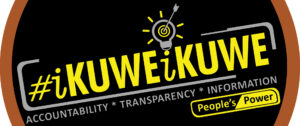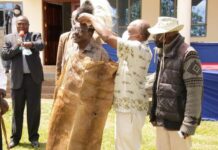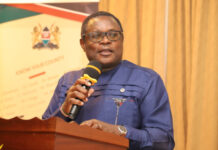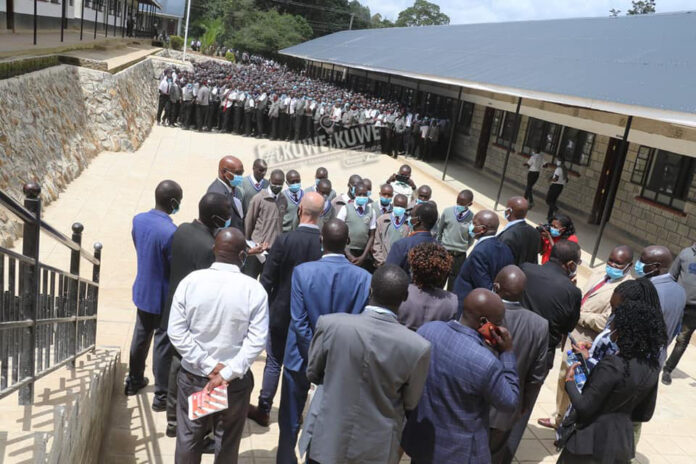On Wednesday, May 19, 2021 West Pokot Governor Prof. John Lonyang’apuo together with Ben Fisher – Head of Department for International Development (DFID), Joseph Akure -Regional Advisor British High Commission, Mohamed Guleid – CEO FCDC and Bishop Crowley – Kitale Catholic Diocese held a consultative meeting with Education stakeholders from West Pokot County.
The main agenda was Secondary Education Quality Improvement Project (SEQIP) which is one of the World Bank funded projects being implemented in 30 counties which are considered economically and educationally disadvantaged. It has three components namely;
- Improving quality of teaching in targeted areas
- Improving retention in upper primary school and transition to secondary school in targeted areas through Elimu scholarship
- System reform support
109 students from West Pokot County are beneficiaries of the Elimu scholarship.
The team also visited and met Kapenguria School’s 17 beneficiaries. The school principal Mr. Ndeda took advantage of the visit to showcase facilities constructed under SEQIP project to the satisfaction of the visitors. The Principal lauded County Bursary for All scheme which has increased access to education across the county.
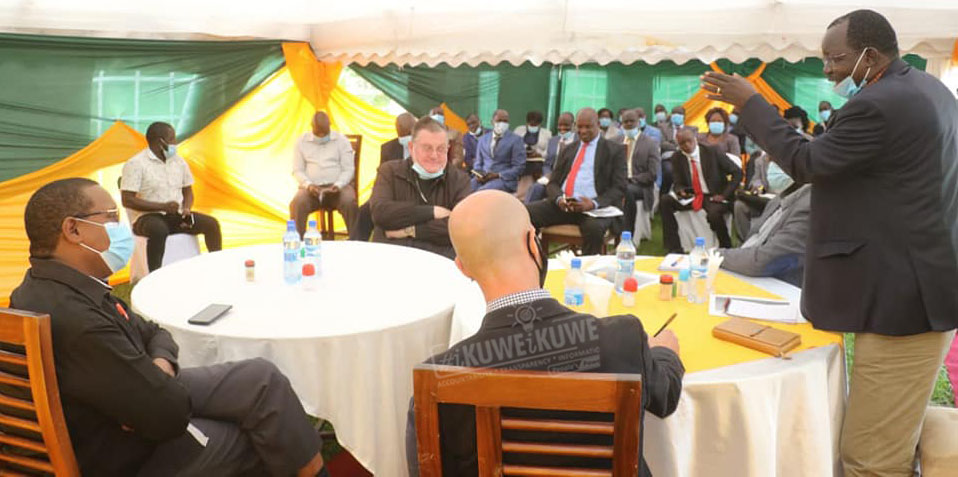
About SEQIP
The Government of Kenya has partnered with the World Bank (WB) to improve student learning and transition from upper primary to secondary education in targeted areas. This objective will be achieved through the implementation of the “Secondary Education Quality Improvement Project (SEQIP) which aims to “improve student learning and transition from Primary to Secondary Education in targeted areas. The project beneficiaries are about 600,000 pupils in upper primary and 600,000 students in secondary from 17,500 and 8,500 primary and secondary schools respectively.
The schools are located in 110 sub-counties from 30 counties that are educationally and economically challenged including those in Arid and Semi-Arid Land (ASAL), urban slums and regions with pockets of poverty. SEQIP has four components namely; improving quality of teaching; improving retention in upper primary and transition from primary to secondary schools. The components will be implemented by the Ministry of Education (MoE), Teachers Service Commission (TSC) and other agencies.
